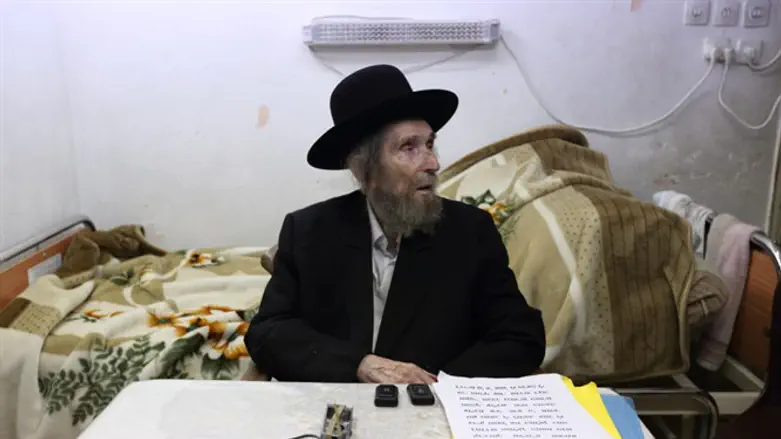
One of the largest funerals in the history of the state of Israel took place last week, with thousands in attendance at the passing of the great scholar and leader Rabbi Aryeh Leib Shteinman. Though he was 104 years old at his passing, his absence was felt by so many simply because of his extraordinary piety, generous personality and visionary leadership.
His works of commentary to the Talmud gained him early fame and notoriety even though they were published anonymously. Modesty and humility adorned him all of his life and yet he rose to be the leader of one of the great yeshiva movements in Israel…. and perhaps of all time. His leadership was levelheaded, realistic, moderate and noble. He was never given to bombastic statements or extreme positions on political and religious matters.
In an age when religious extremism seems to dominate the debate he was unfazed by the criticism that came his way or by the opposition that he faced to certain of his practical and correct decisions. He lived modestly, almost close to poverty, never sought honor or recognition for himself, but he had a firm view of modern-day Israeli society and of the yeshiva world that he led.
He did not have fanciful illusions about what could be achieved in practical terms to strengthen the Torah religious face of modern-day Israel. But he stood his ground on major issues and achieved notable success in creating a more traditional Jewish society here in Israel. Undoubtedly someone else will eventually succeed him in his role in the religious world, but as is usually the case with great people, he is really irreplaceable.
Last week also saw the passing of my closest friend and in many respects my rabbinic mentor, Rabbi Aryeh Rottman. Rabbi Rottman was the founding rabbi of Congregation Beth Israel in Miami Beach Florida in the 1950s. It was because of his personal intervention in my life that I left my profession as a lawyer and agreed to succeed him as the rabbi of that wonderful synagogue that I was privileged to serve for almost 9 years in the 1960s and early 1970s.
He was one of the founders of the Miami Mesivta, the first of just a few high schools that existed in that community. His kindness and compassion for all human beings was legendary and I must admit that he was a very hard act to follow. His mouth did not speak evil language about any human being nor were his ears willing to hear derogatory words about others.
He later moved to Long Beach, New York where again he served as a pulpit rabbi and was the founder of the yeshiva that still exists there. In the 1960s he moved to Israel and established the great yeshiva of Mercaz Hatorah, located here in Talpiyot, Jerusalem. He spent all of his life teaching Torah, helping human beings, and raising and inspiring students. He was a role model for old and young alike and one was always amazed by the warmth of his personality and the firmness of his leadership and vision. To me personally he is certainly irreplaceable.
Every generation has special people that affect the lives of many of their contemporaries as well as the lives of later generations. The Talmud teaches us that the Lord, so to speak, saw that these people were rare in human society and therefore He sparingly distributed them over the generations. In this way every generation would have some of these superior scholars, leaders and role models.
As the previous generation, now inexorably passing from the scene, we can mourn the loss of such great people. However, the Jewish people are never bereft of scholarship, humanity, piety and visionary leadership. Time will tell who the exact replacements in the next generation will be for those who have just passed on.
We may be assured though that there will definitely be proper replacements to guide the Jewish people spiritually in the difficult times that we apparently face and will face for the foreseeable future. King Solomon remarked in the great book of Kohelet, that generations depart and new generations arrive in the world and will do so eternally.
It is not only the world that exists eternally but its challenges and problems, troubles and disparities, holiness and tradition also remain and are revealed in every generation, through different people and to changing circumstances. This should be a source of comfort to us when we assess what we have lost in the events of the last weeks.